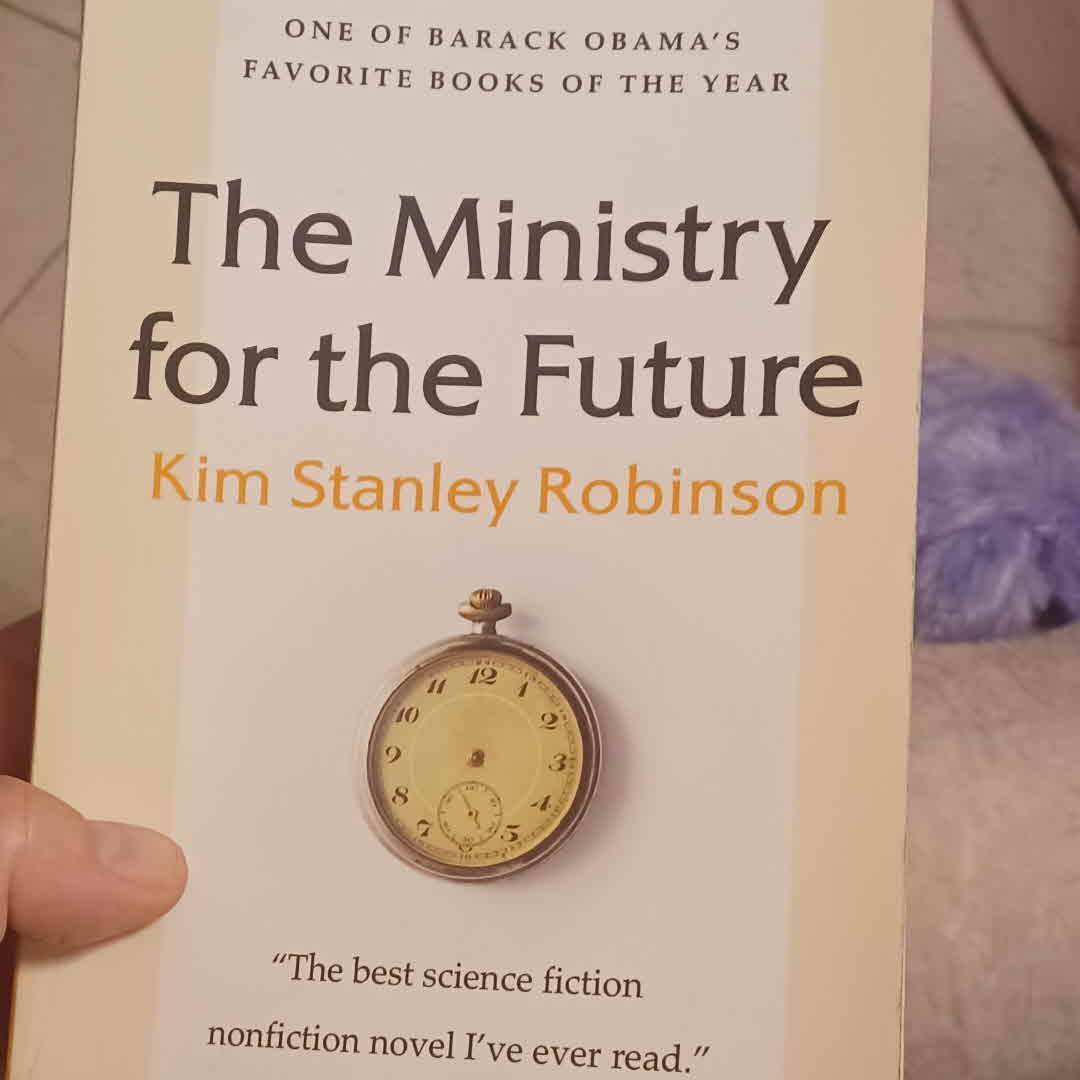

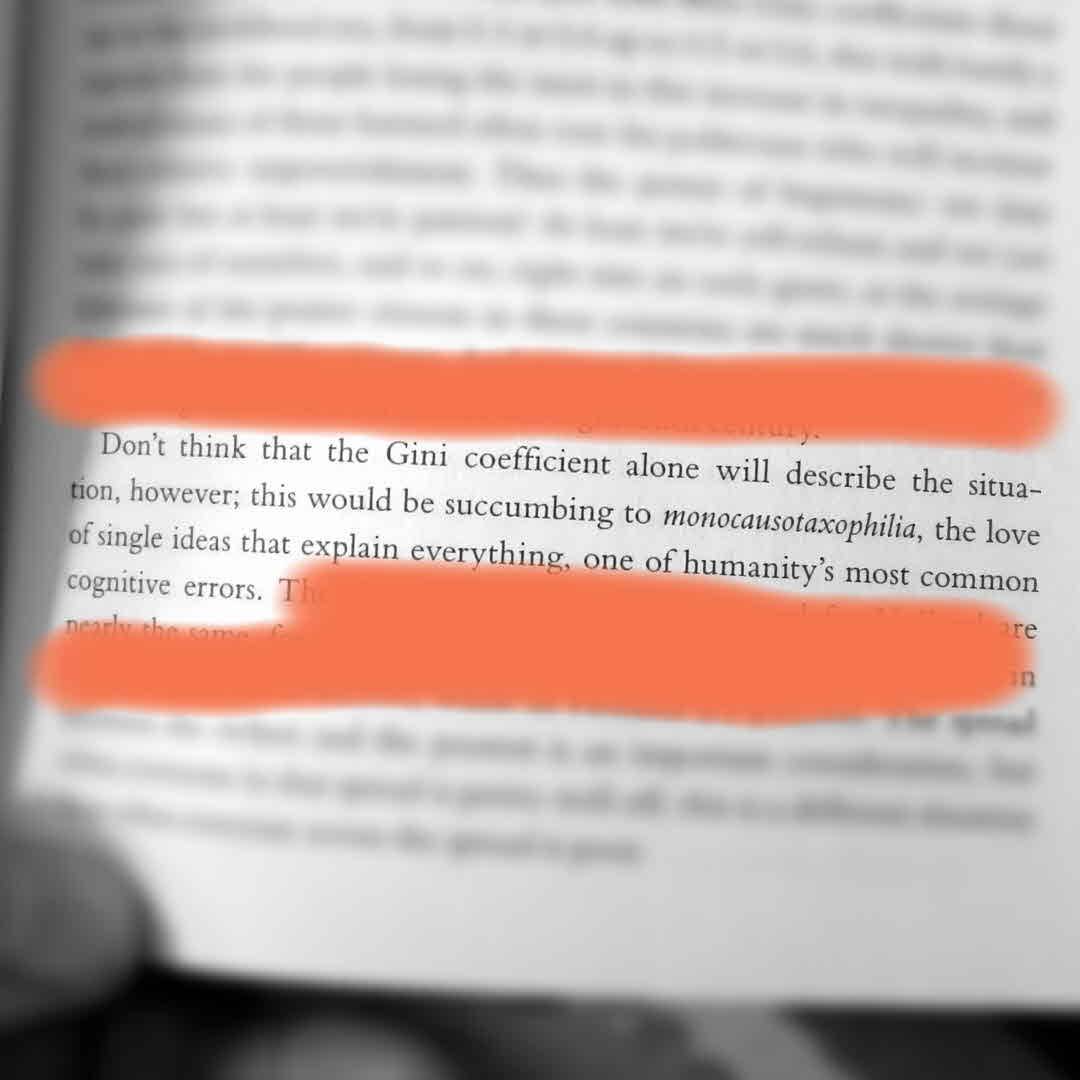
Monocausotaxophilia. I've loved this word for years, and was delighted to come across it.
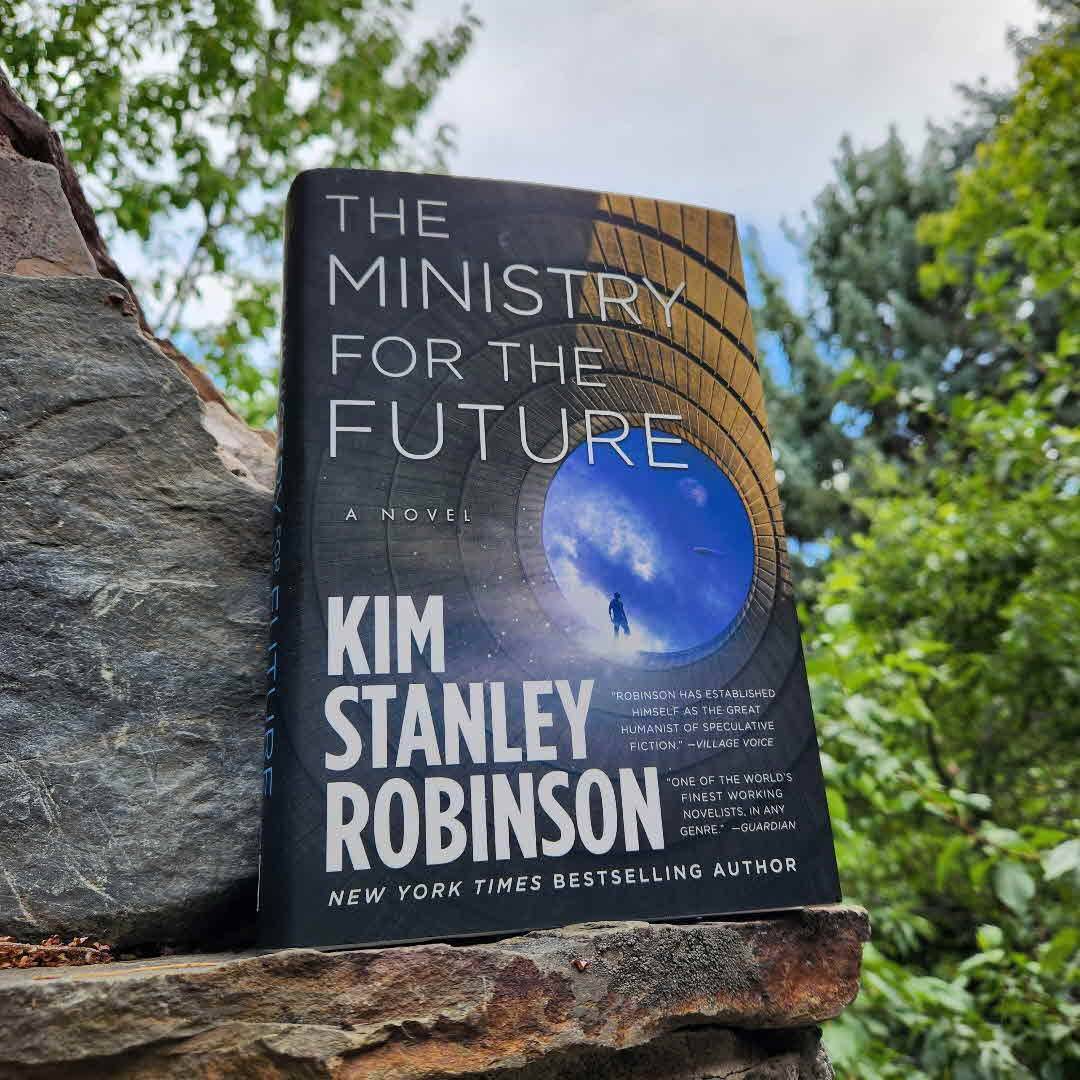
Started today
If you follow me, you know that sci-fi is not my usual reading. But climate change is my top issue so my good friend and fellow librarian, Shawn, gave me this for my birthday in 2021. In 2023, he and I met Robinson after a talk at the University of Utah and I was able to get it signed.
#UnitedAgainstBookBans #LetUtahRead
What starts as an intense, sobering depiction of a world thrown into chaos by global climate change actually ends with a cautionary but optimistic future of what can be done with some optimism and ingenuity. It‘s a little hand-waving about the politics and mass cultural change needed to get there, but well deserving of a read. And climate change activists need some optimism…
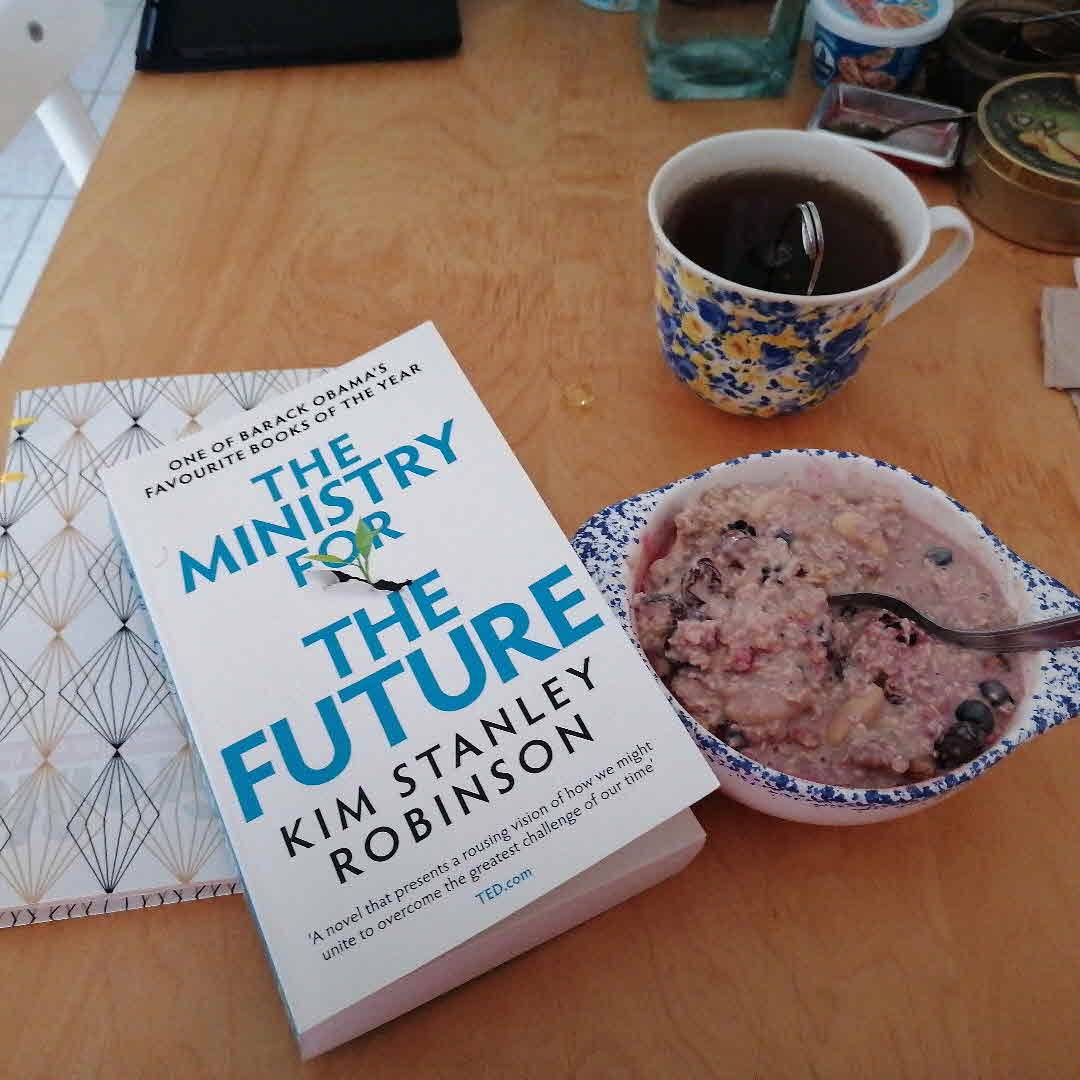
First book of 2024... 170p still mostly depressing, i am counting on the author to switch that, at least in the book !
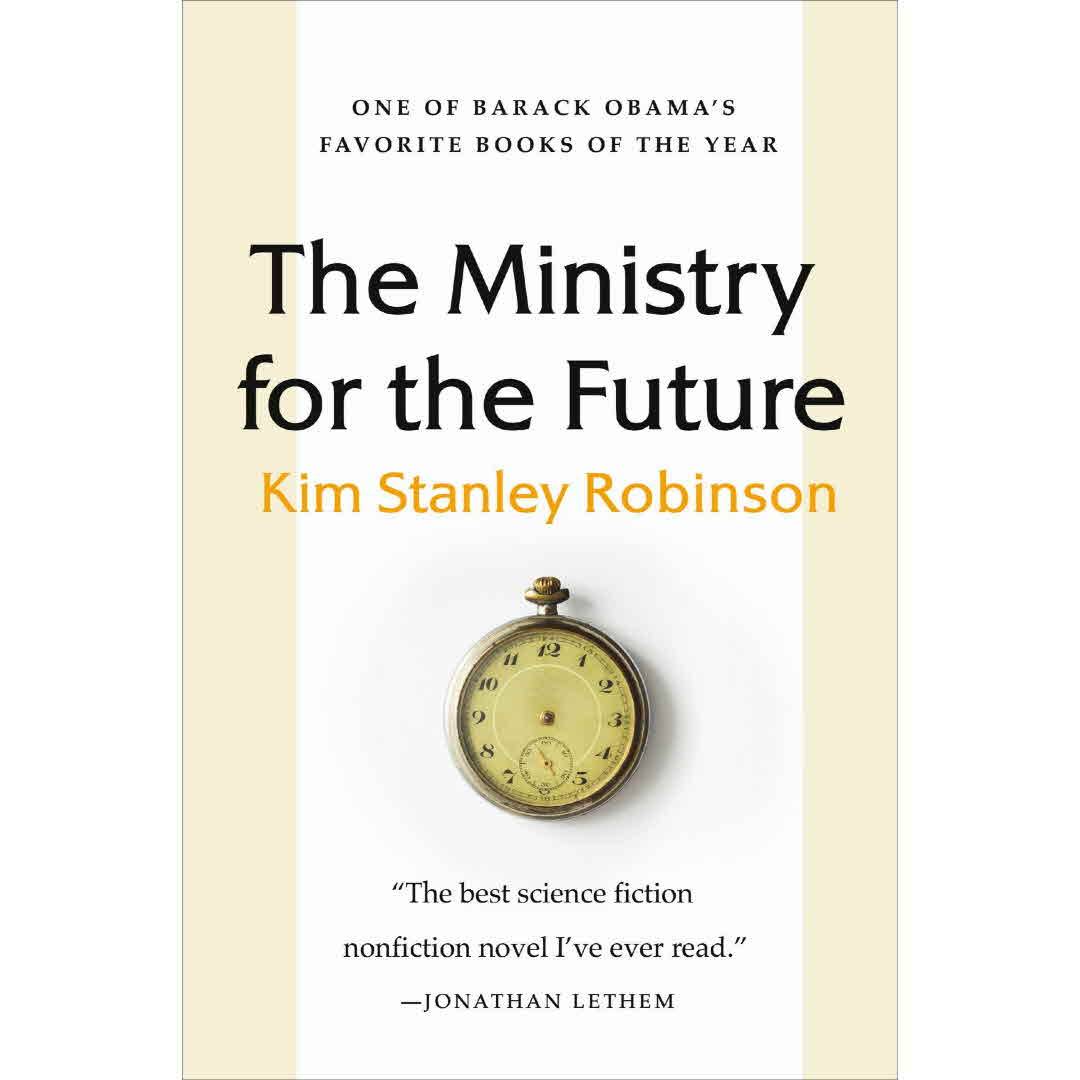
I thought this was terrific. It is utopian, & firmly in the category of science fiction, because it suggests that there will be a consensus to adopt hard measures to overcome the planetary wreckage brought about by capitalist development. It starts off as a horror story but ends in a manner that's both beautiful & earnest in a way that my fiction reading self wants to believe in, but my cynical side says is impossible to achieve in the real world.
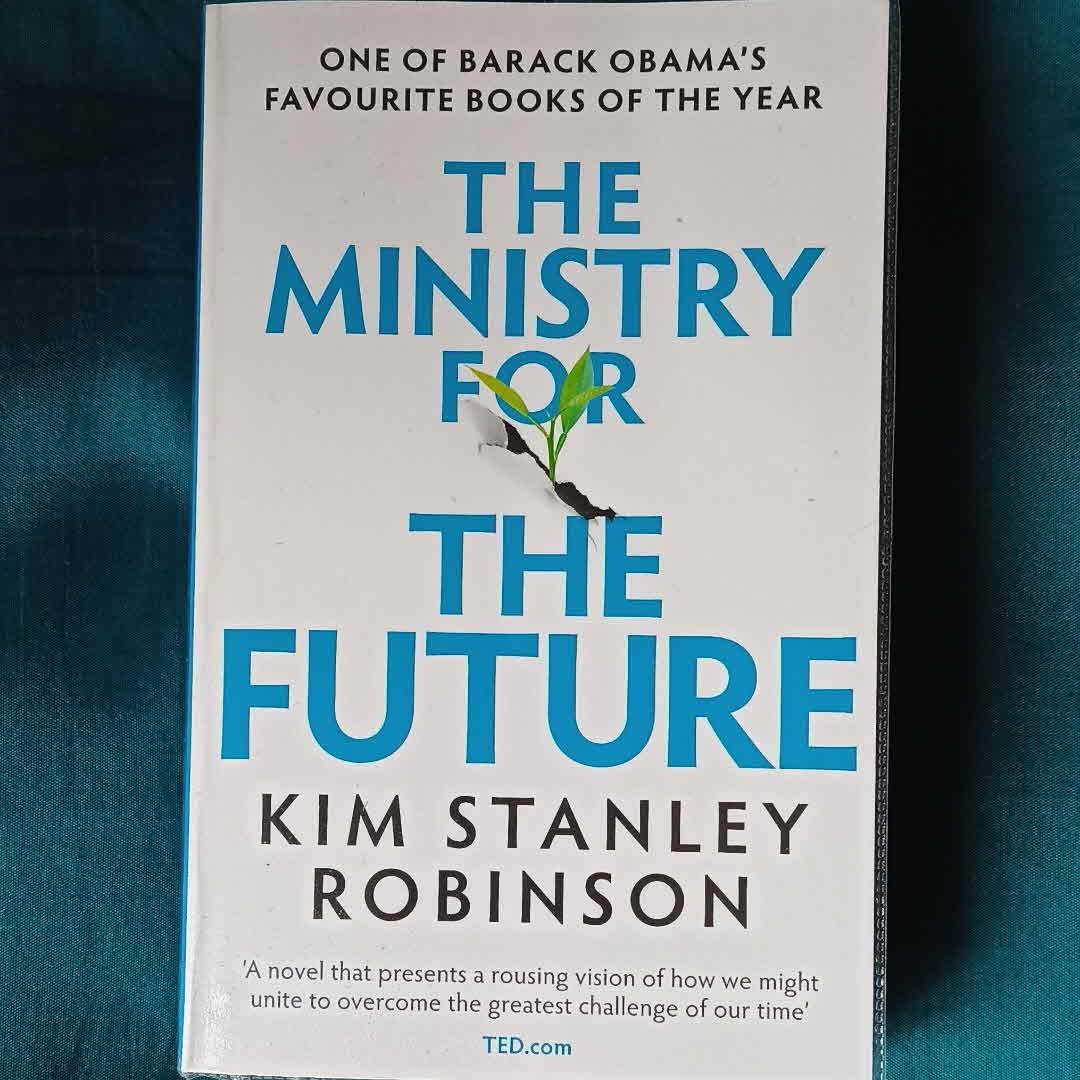
Reading a KSR novel is a bit like reading non-fiction. He writes science heavy Sci-Fi. This horrific yet hopeful near-future vision reads almost like a documentary, following a UN ministry but also giving voice to refugees, aid workers, farmers, glaciologists, environmental terrorist/activist groups, economists etc. It's slow, and there's not much plot beyond "trying to save the planet". It should be compulsory reading for policy makers everywhere
Revolutions don't involve guillotines anymore. Alas.
You think revolutions are less visible now?
Exactly. Invisible revolutions, technical revolutions, legal revolutions. Quite possibly one could claim the benefits of a revolution without having to go through one.
This was the world's current reigning religion, it had to be admitted: growth. It was a kind of existential assumption, as if civilization were a kind of cancer and them all therefore committed to growth as their particular deadly form of life.
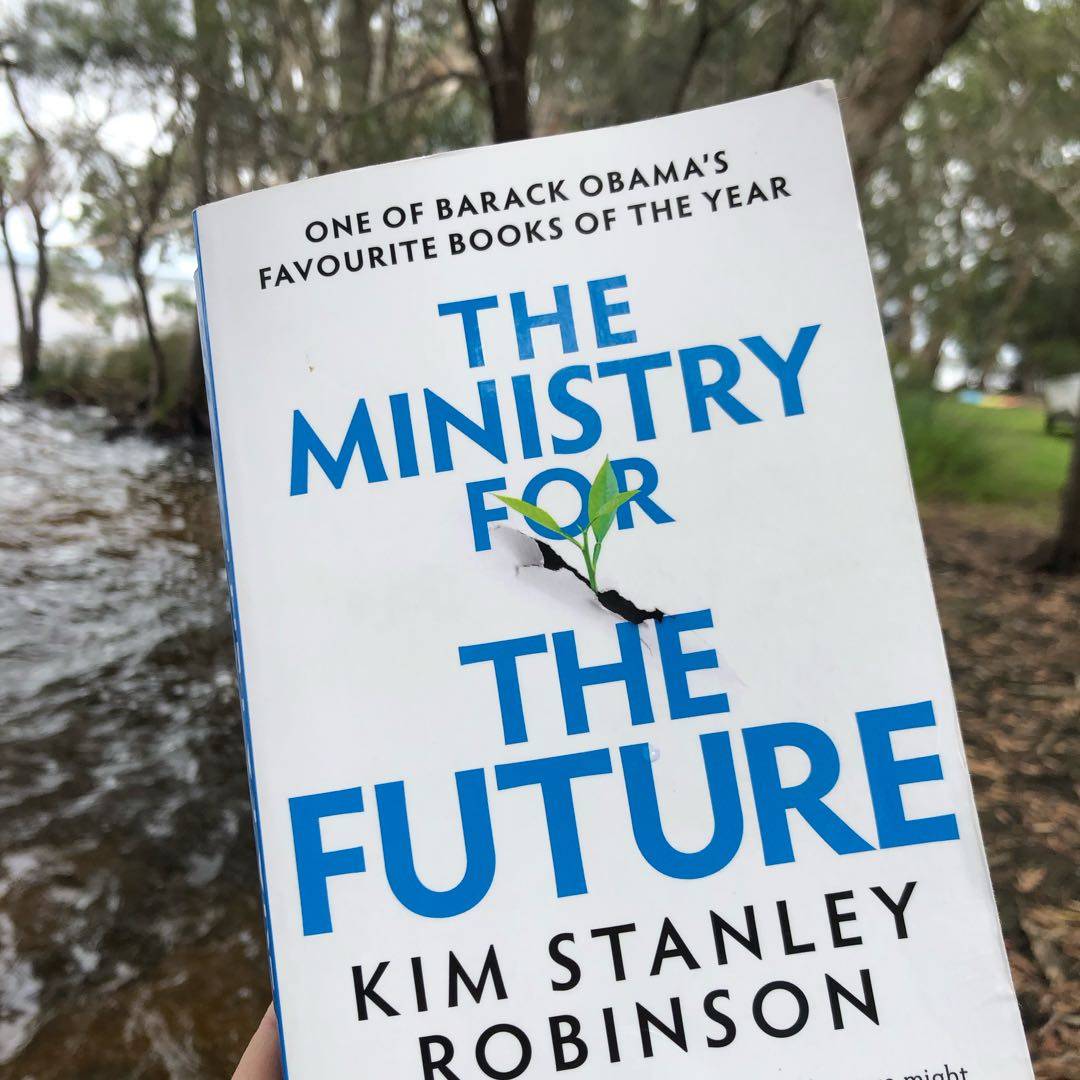
It felt like it took me a long time to read this. Parts of it flew by and other parts dragged. Thankfully the chapters were short, so when the subject matter was heavier it still seemed achievable.
It is scary, depressing and hopeful all at the same time. This book illustrates that there are things we can do, if only we would do them.
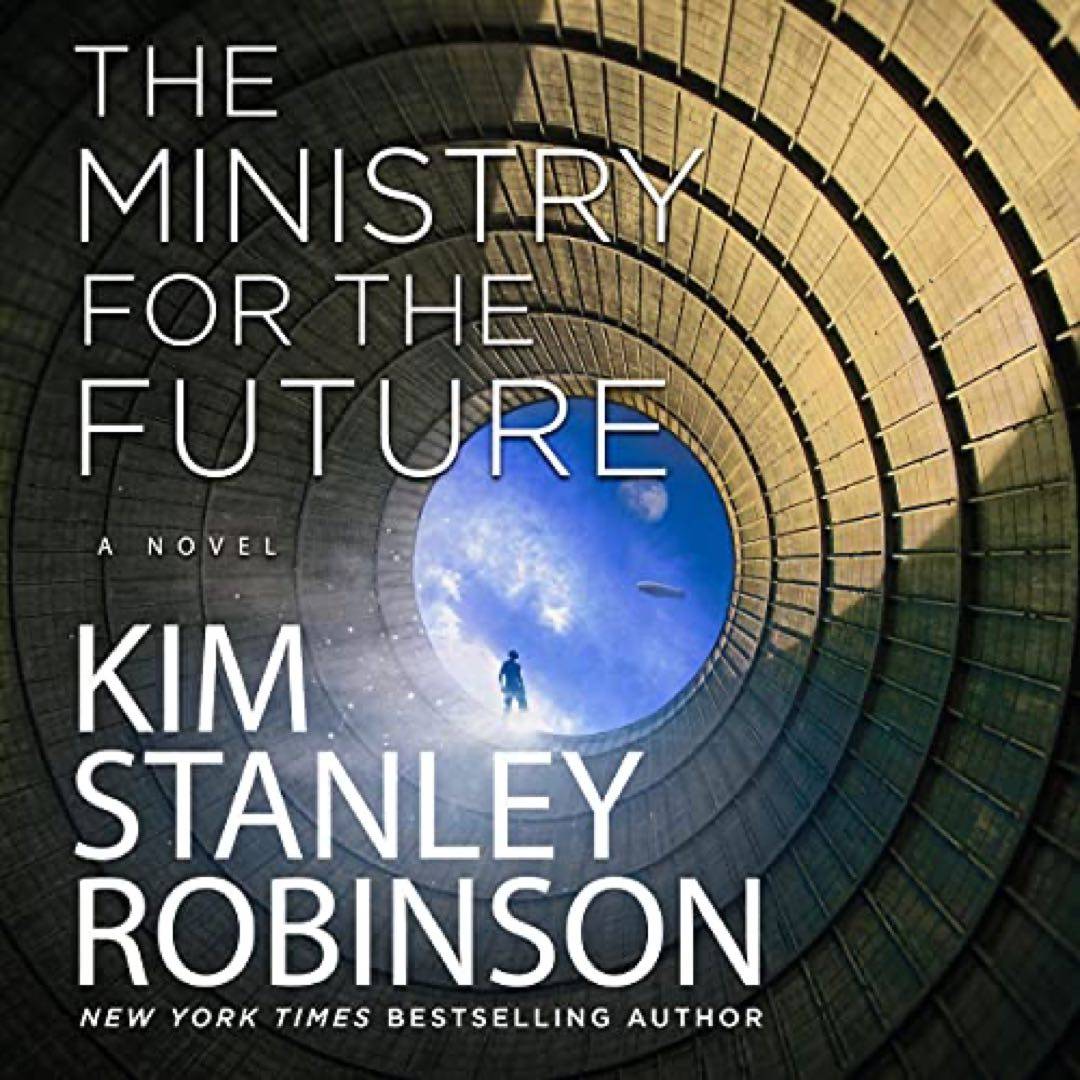
🎧 Hard sci-fi about Climate change, a bridge between fiction & fact.
Heat related deaths. Political intrigue. Multiple points of view & narrators.
Liked the multiple narrators but some didn‘t seem to have a good grasp of the material. Still, I enjoyed it with multiple voice actors.
Author has a positive outlook on global warming. An interesting, thought provoking read. On the cusp of post-apocalyptic as it‘s definitely not utopian.
⭐️⭐️⭐️3/4
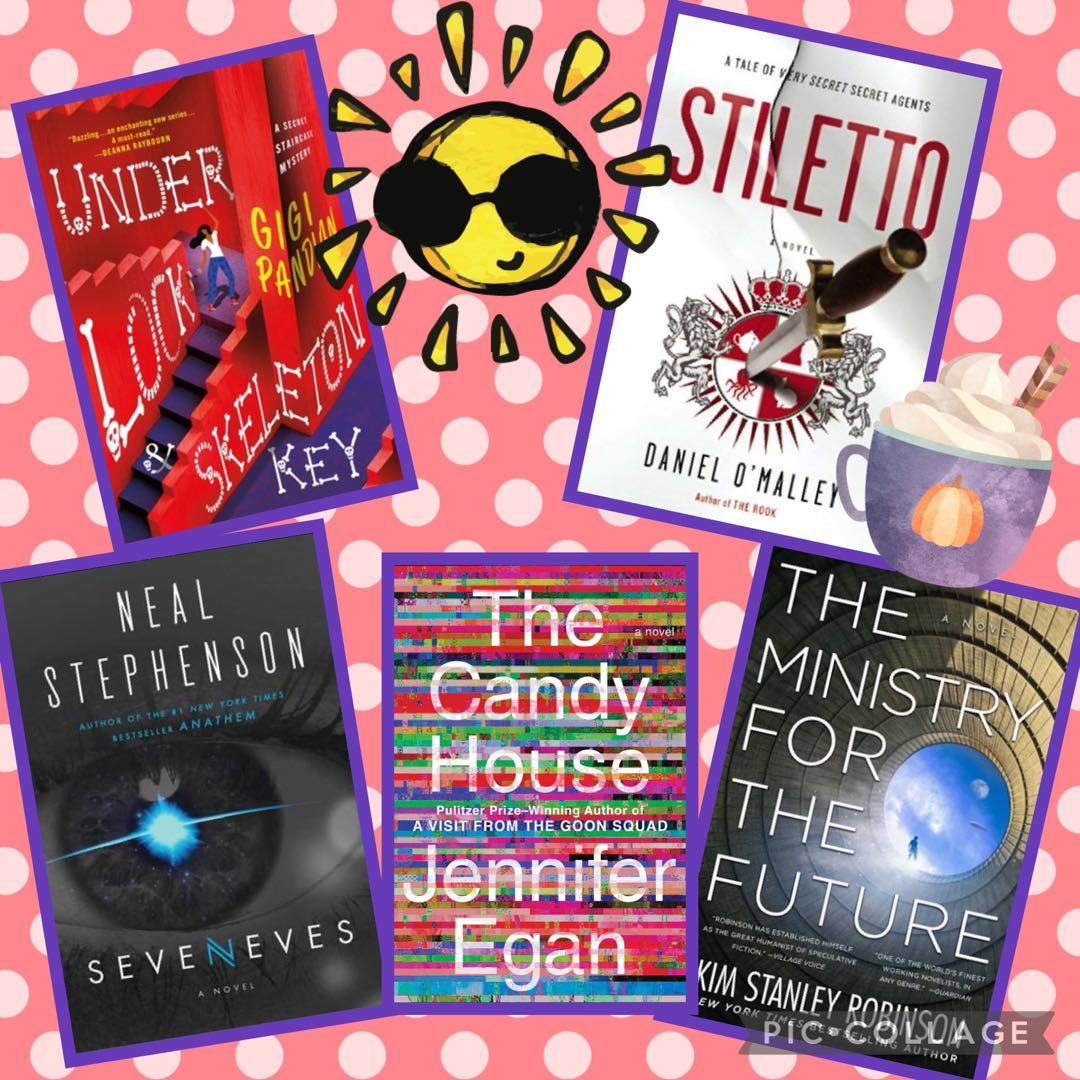
Summertime… and the livin‘ is easy… 🎶🎶
In reality, it‘s been a brutal summer! And I‘ve been in the mother of all reading slumps, despite having really good books on my plate! (Though the audiobooks are admittedly sloooow…) Just waiting for fall 😫
These are, starting at upper left & going clockwise:
#LMPBC #Justbecause #audio #RealLifeBookGroup #audio Waiting impatiently on the tbr pile are #cbbc and #botm books… sooo many books… 😎😎
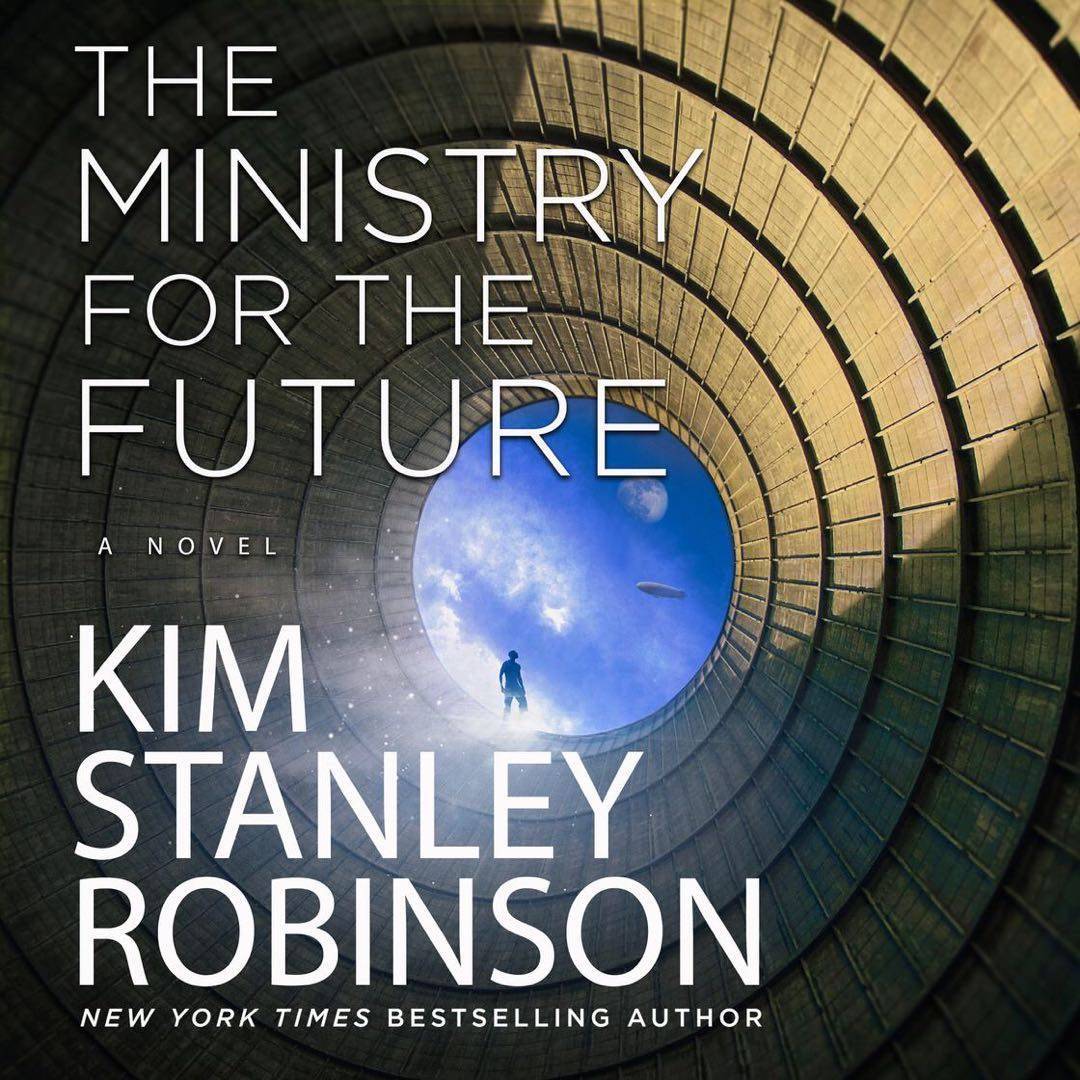
If we‘re going to have a future on THIS planet with THIS civilization, we need more books like this one. This work of climate fiction is exhaustively well-researched and ranges from horrifying to radically hopeful in its vision of the ways a “Ministry for the Future” within the UN and eco-radicals (to put it generously) could stop this headlong rush into climate catastrophe we‘re currently on. Worth the page count!
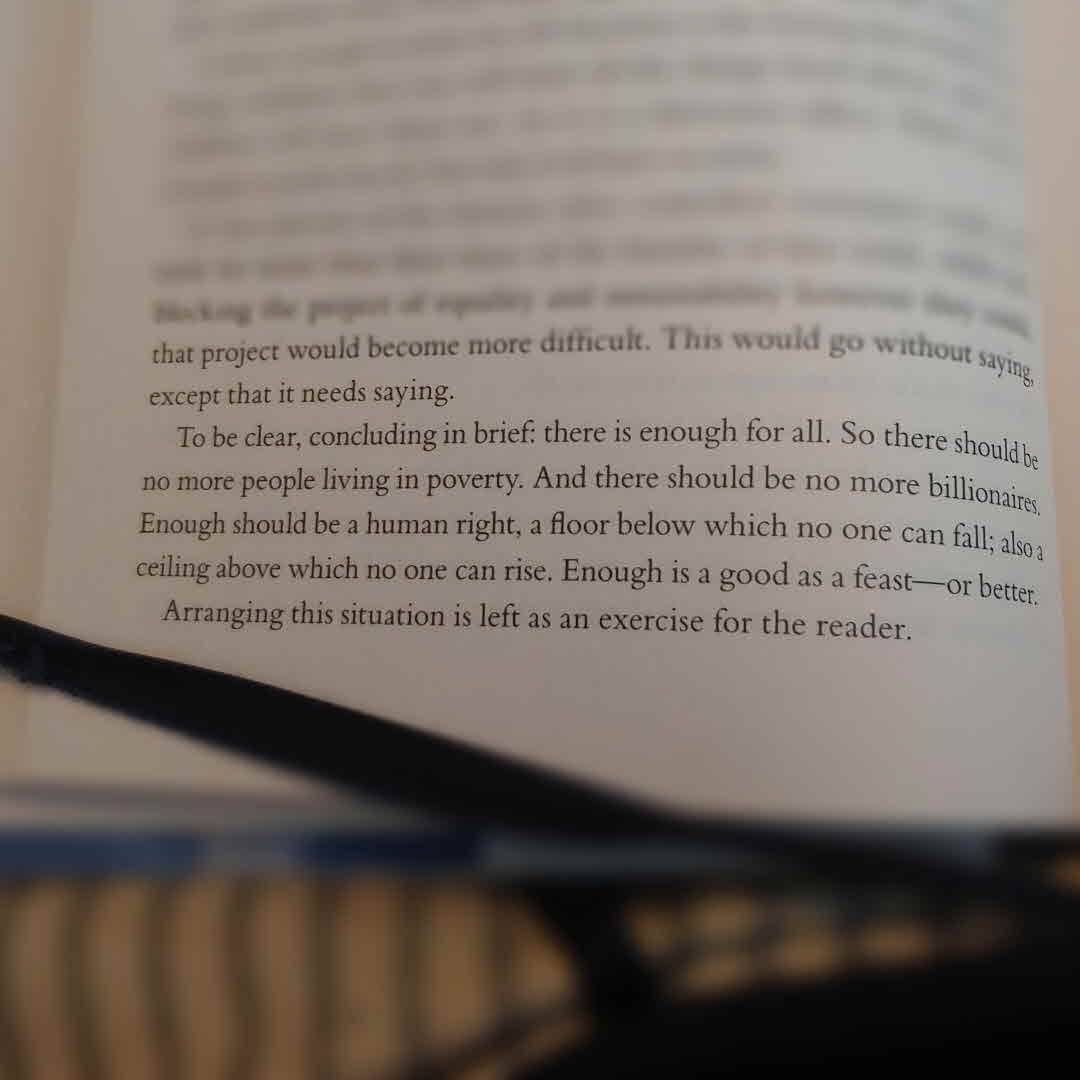
To be clear, concluding in brief: there is enough for all. So there should be no more people living in poverty. And there should be no more billionaires. Enough should be a human right, a floor below which no one can fall; also a ceiling above which no one cn rise. Enough is as good as a feast - or better.
Arranging this situation is left as an exercise for the reader.
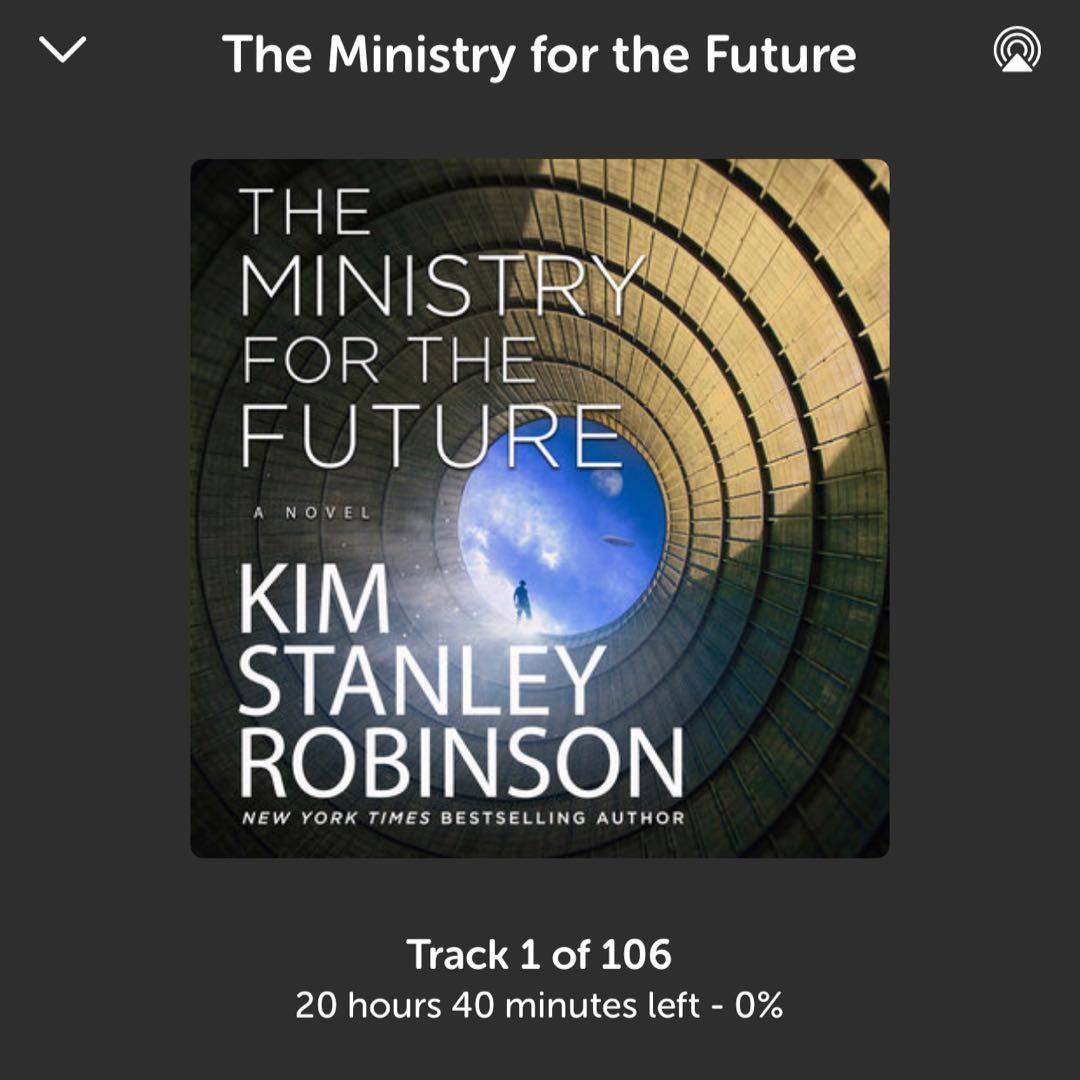
This hearty work of hard science fiction has been the antidote to my climate change despair. As a novel it is good. As a thought experiment imagining a near future in which humanity averts complete disaster and begins the transformation into an ecologically humane civilization — it is a masterpiece. If we‘re going to overcome the converging catastrophes of our century we‘ll need powerful and well researched stories like this to help find the way.
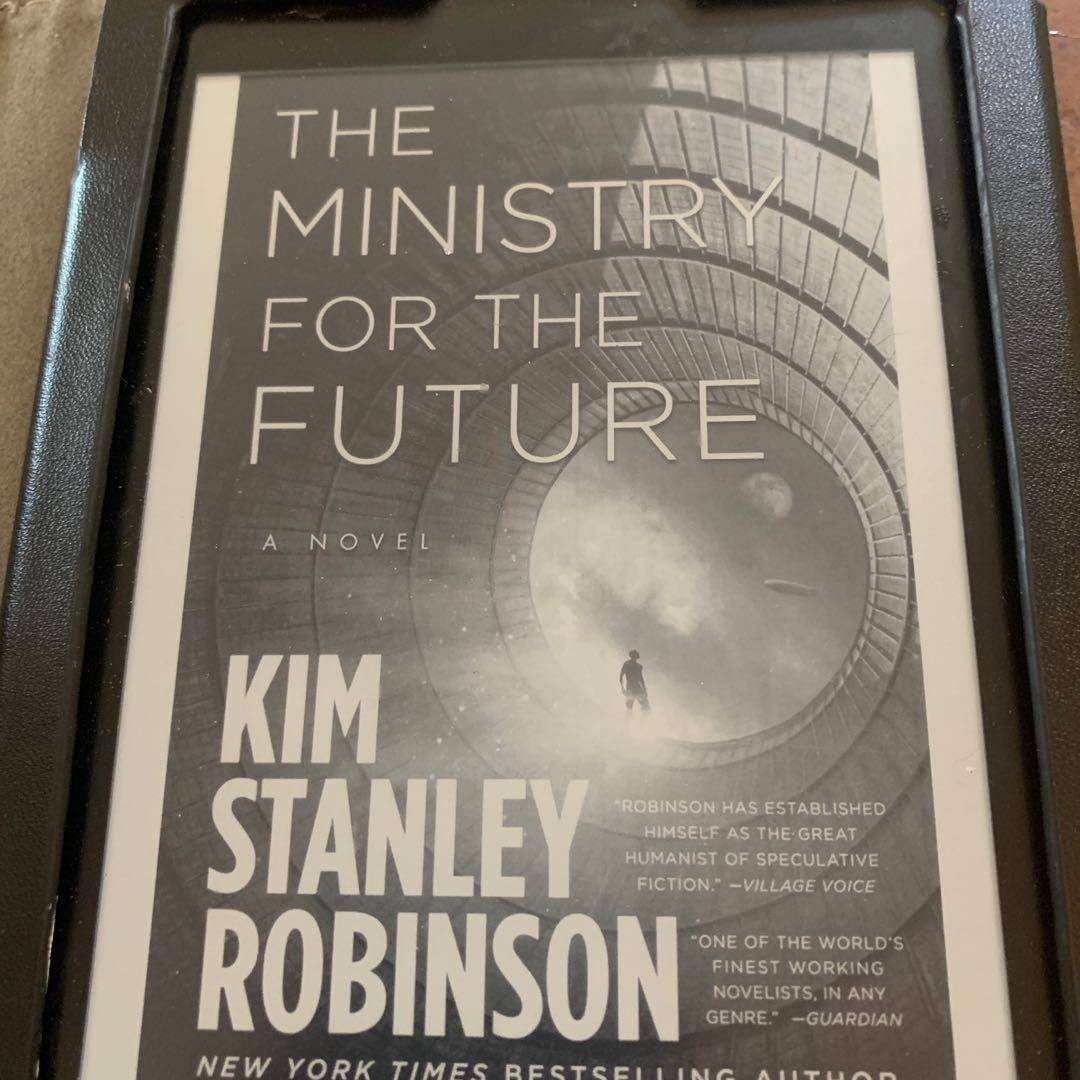
How I wanted to love this book, but I needed more well-developed characters. The start with the heat wave in India pulled me in but then it lost steam and felt like reading general theories on addressing climate change with interludes of Mary‘s story. Parts of it made me think but the style was not for me.
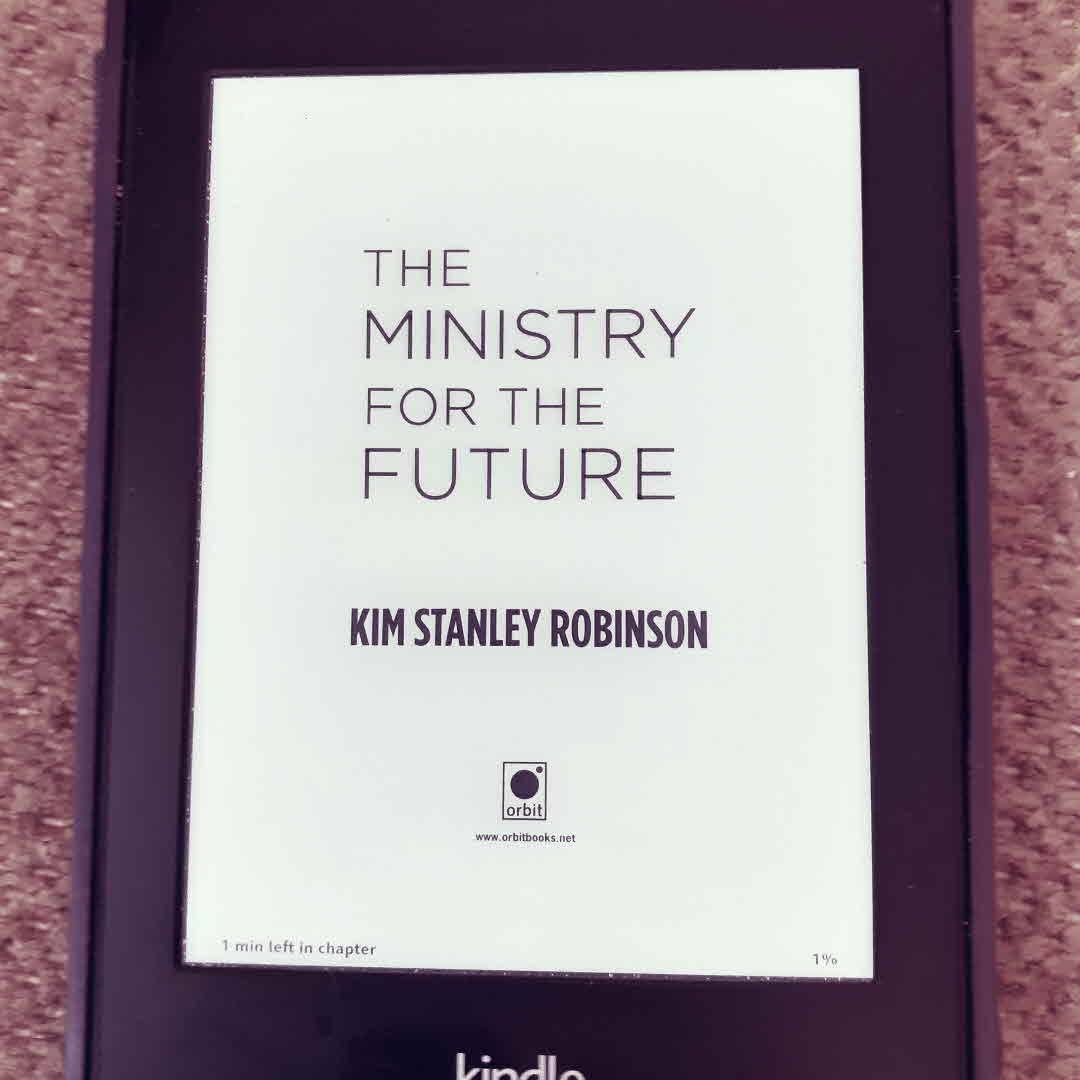
This book felt important and contained many interesting ideas, but wow did it feel long. For every thoughtful exploration of a global effort to combat climate change, there was a brief chapter from the perspective of a photon. I finished it, and I'm glad I read it, but it too often felt like work. The opportunity cost of this book was probably 5 or 6 other books. A must read if you are passionate aboute climate change, but don't expect a thriller.
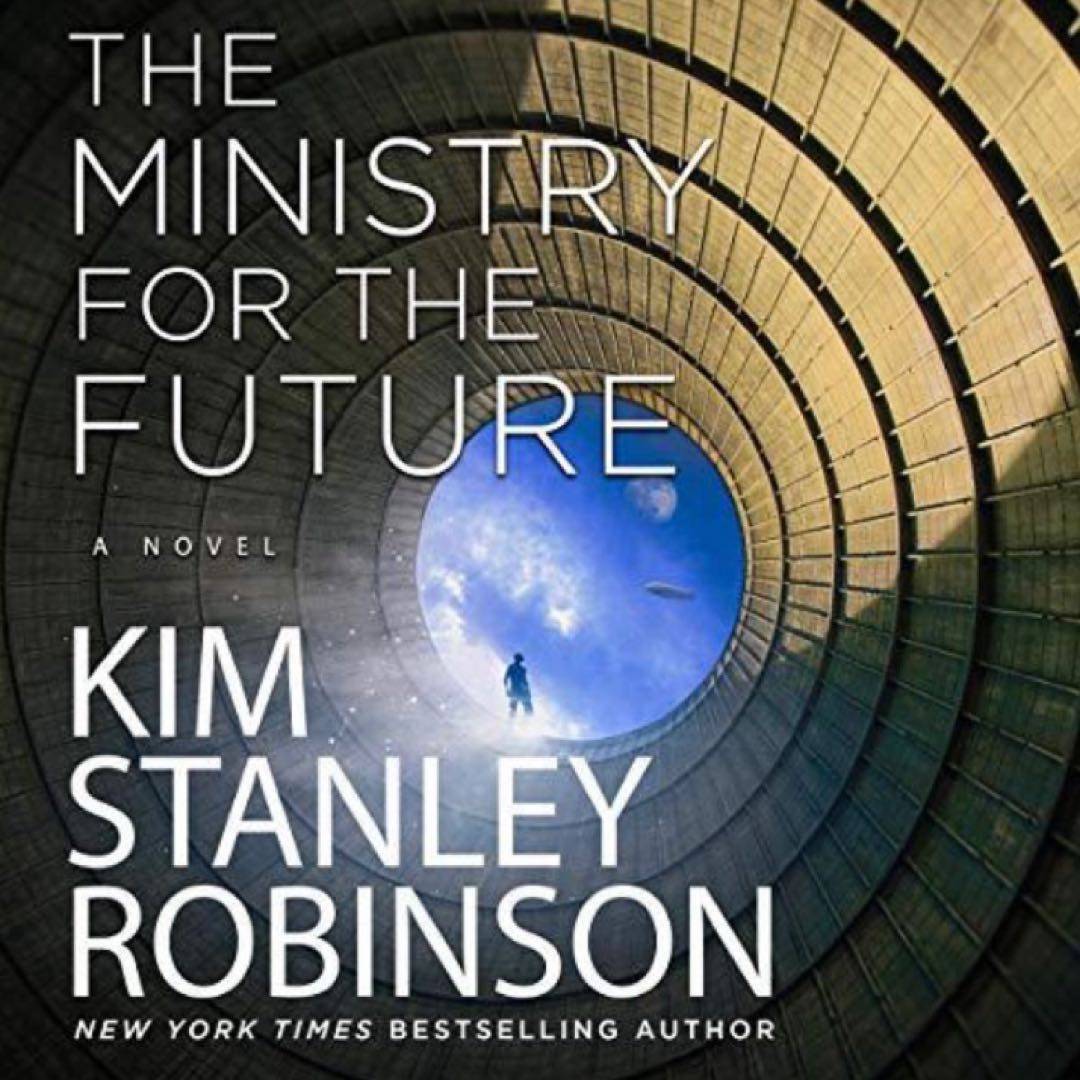
I adore Kim Stanley Robinson for his intelligent writing and this is no exception. KSR takes the concept of "ideology" as a tool to shape the topic of climate change. The book is speculative fiction: Climate change has now reached the point of climate crisis and we see how idealogical approaches to resolve the issue are working... or not. But man, the audiobook is terrible, like hate-listening, *long* rant terrible.
?for the book; ?for the audio
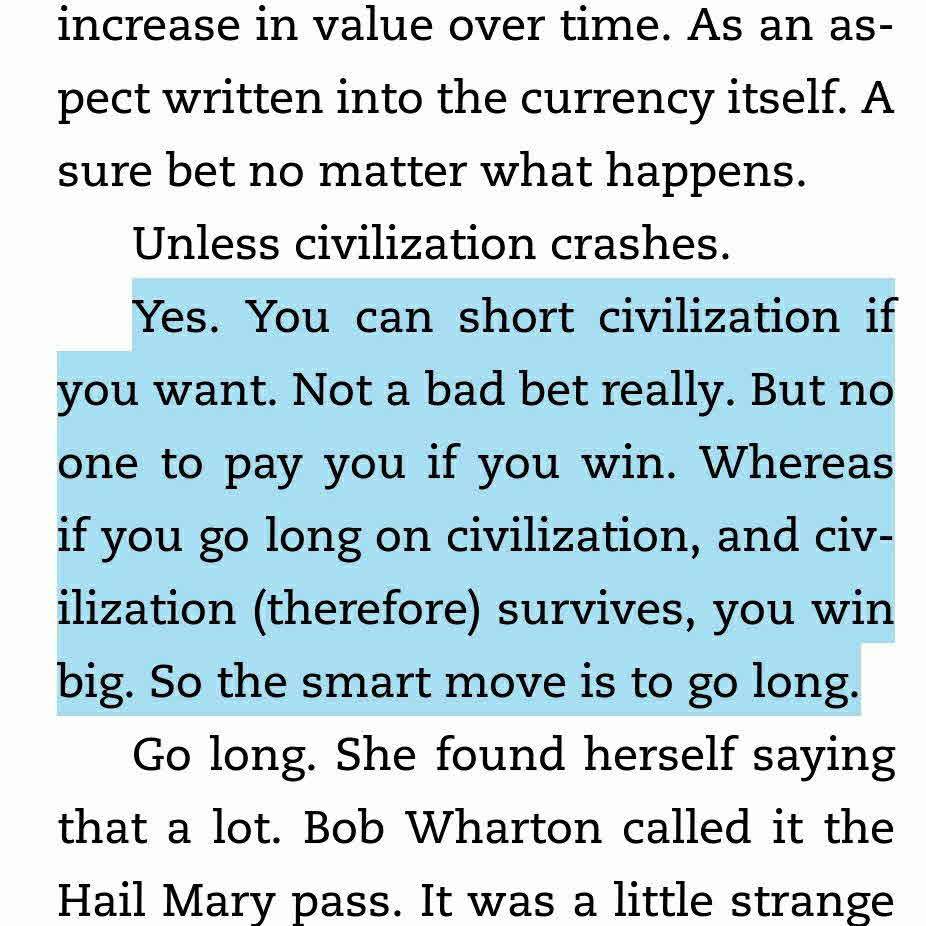
Feels appropriate in this moment, as we lose our collective shit over some Redditors shorting a video game box store (FFS), to be reminded that every day we do nothing about climate change we are literally shorting our own future, and the future of our children and theirs. This book is breaking my whole heart and scaring me senseless.
If you want a peek into the future as to what climate changes might do to us as a world this is an excellent story

I finally opened up the copy of ‘Ministry of the Future‘ that I pre-ordered in 2019 and got day-of-release... and found I had been sent a signed first edition!
Since my life is full of spilt tea and unruly dogs, I‘m gonna put this one up in my KSR shrine and listen to the audiobook edition instead.
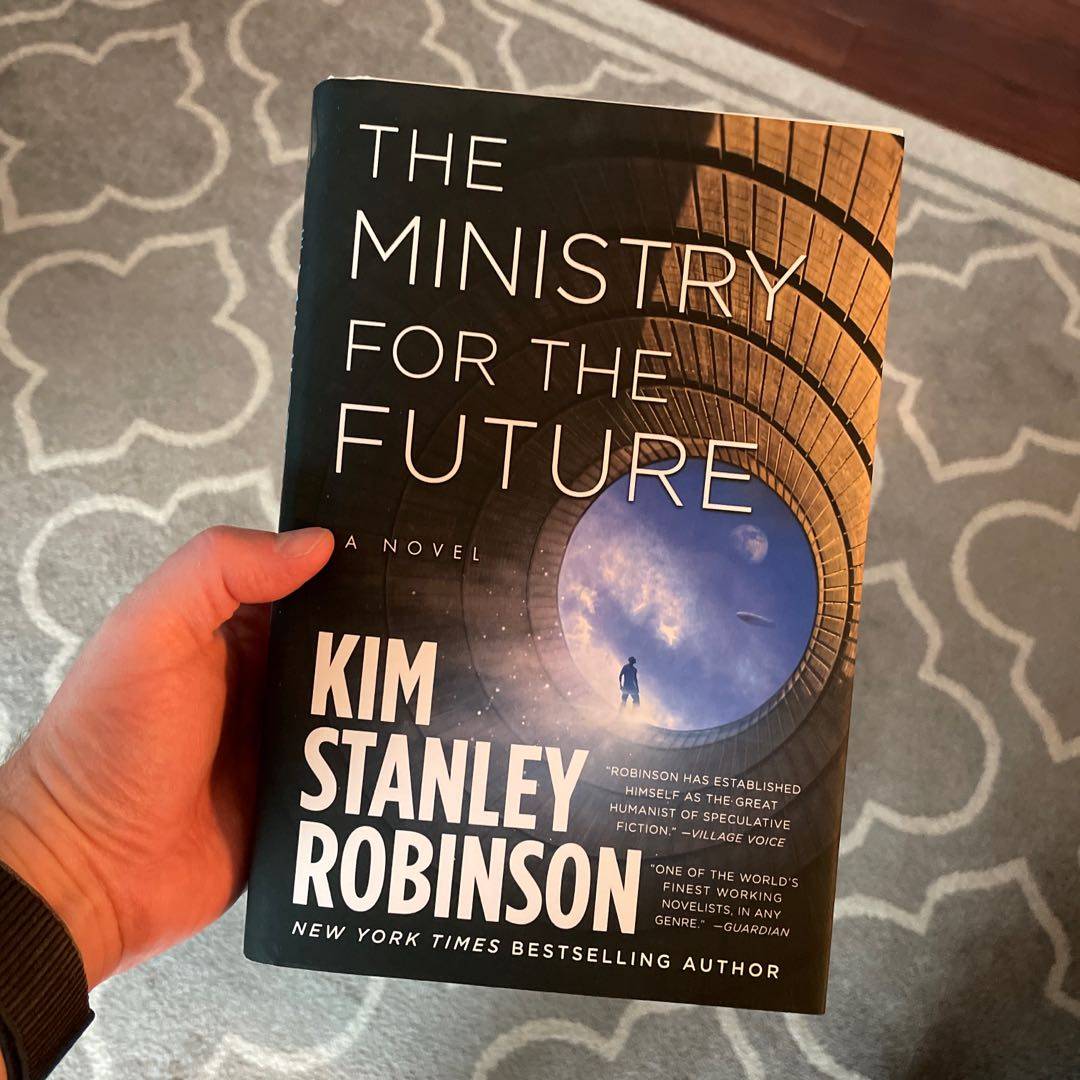
I love KSR‘s writing. His books always make me want to be better, try harder and learn more....
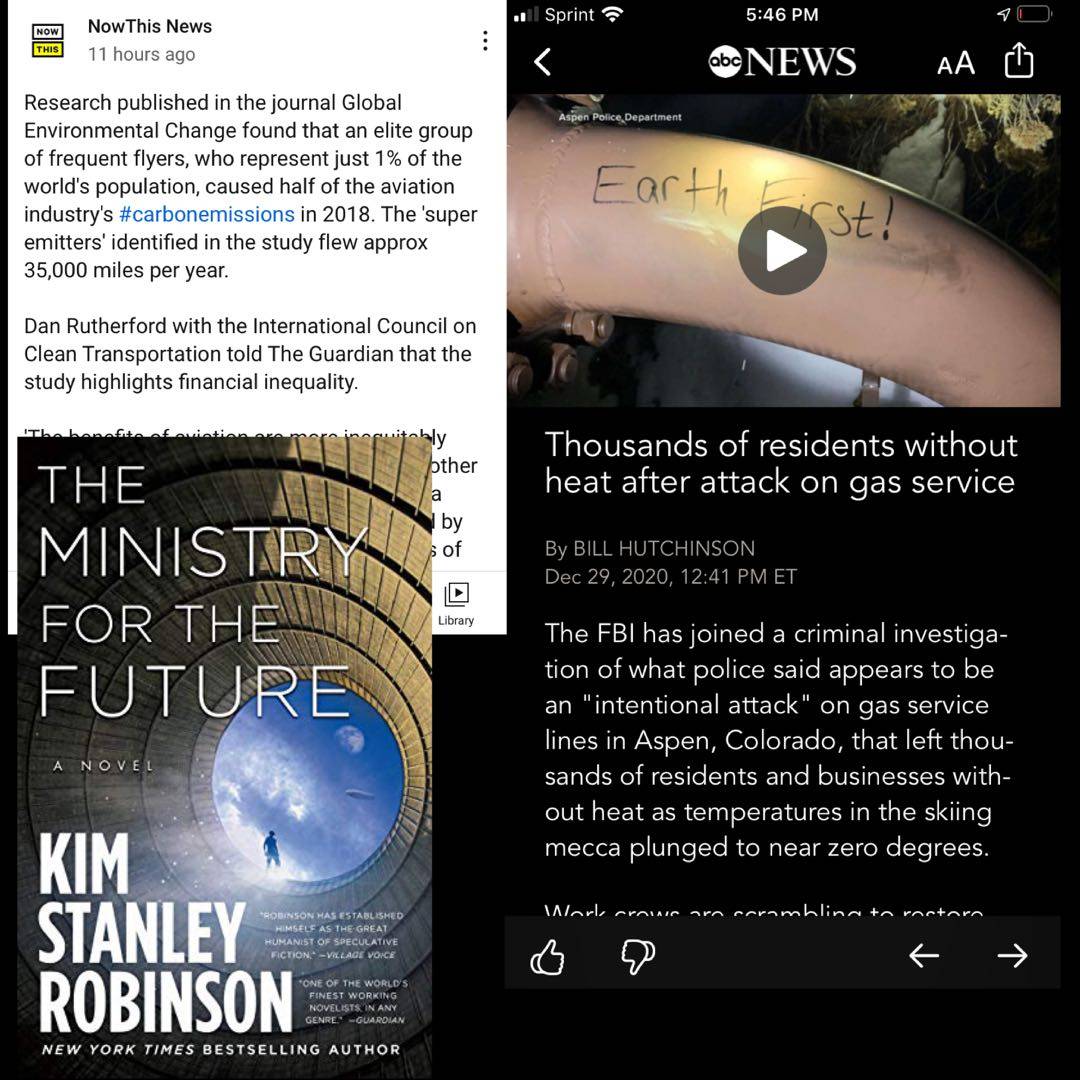
As much as I complained about this book allow me to elaborate on some of the plot points. India suffers a heat wave that kills 20 million people. Nobody in the world cares because they‘re poor and brown. An ecoterrorist or futureactivist depending how you look at it called Children of Kali arises and starts doing things such as causing a crash day with drones, downing 67 planes containing mostly businesspeople who profit off the earth‘s demise👇🏼
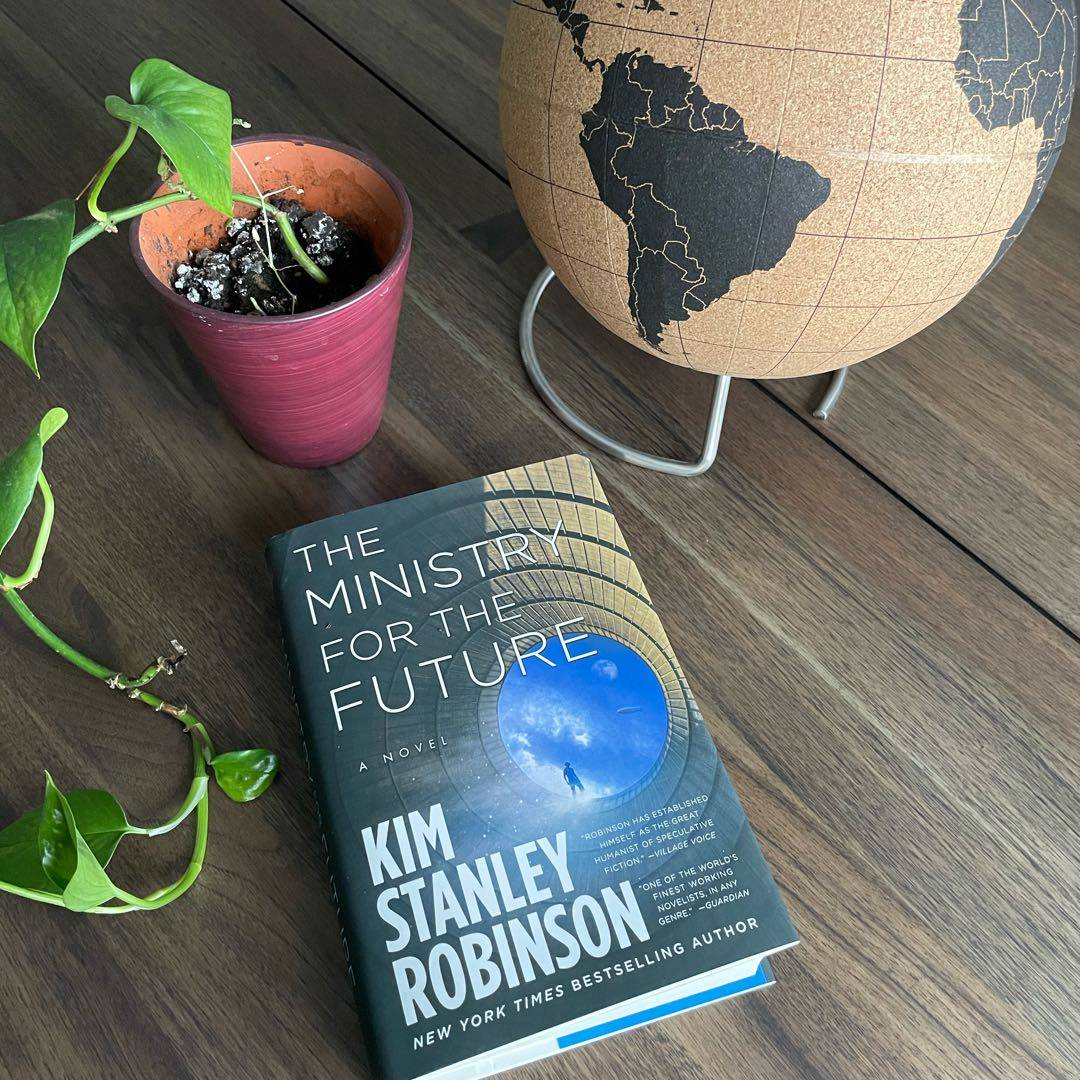
Looking forward to starting this book today. Kim Stanley Robinson is easily one of my favorite writers. His climate writing fills me with both a sense of urgency and hope.
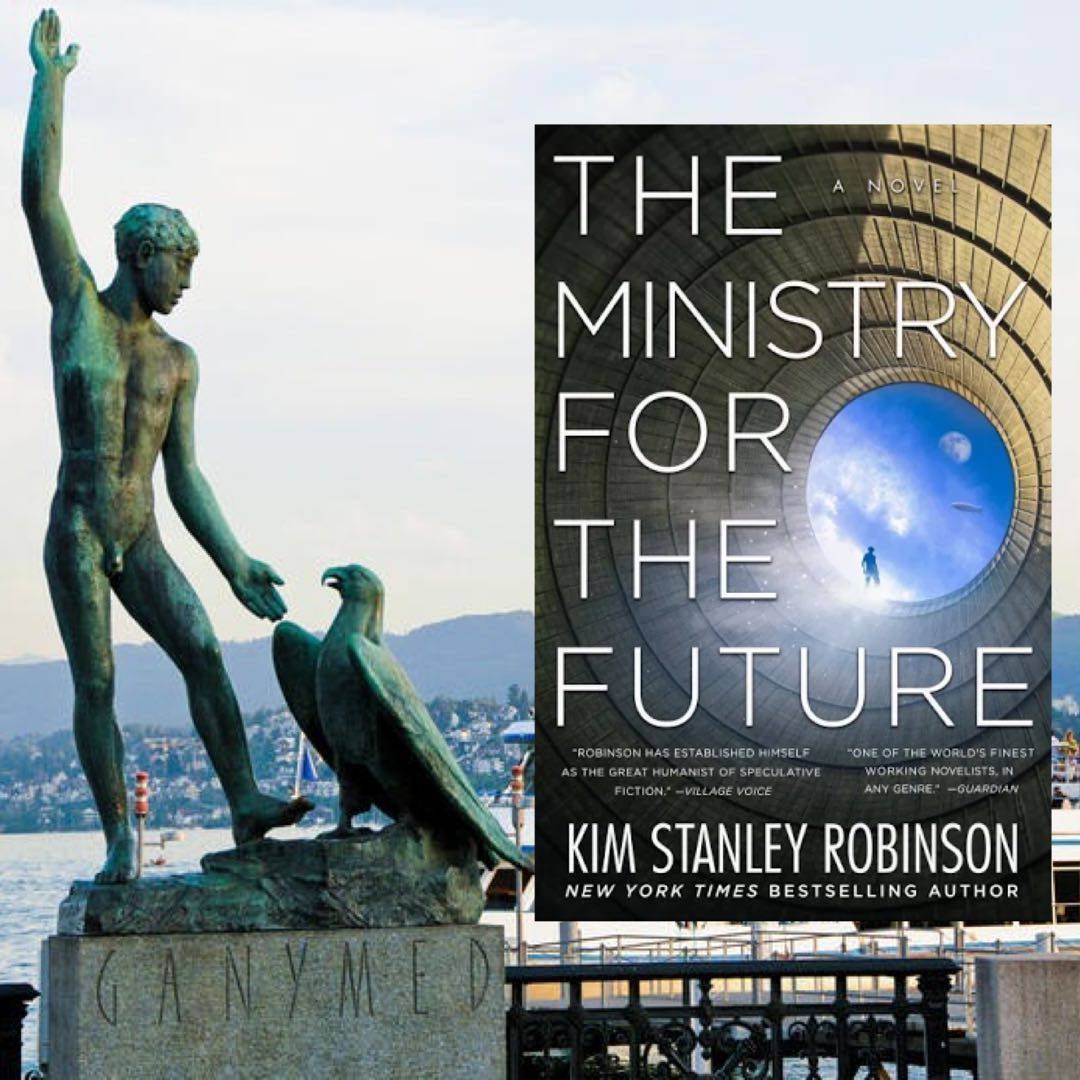
Pick a lane, Robinson. Either you want to be nonfiction. Or you want to be exciting cli-fi that exhibits those ideas but don‘t try to do both in alternating chapters that feel like they undercut each other and make me question why I‘m still reading this or hate myself because I read all 566 pages. But this is a pick for the hope you give me and that the ideas were interesting. Just a big no to your format.
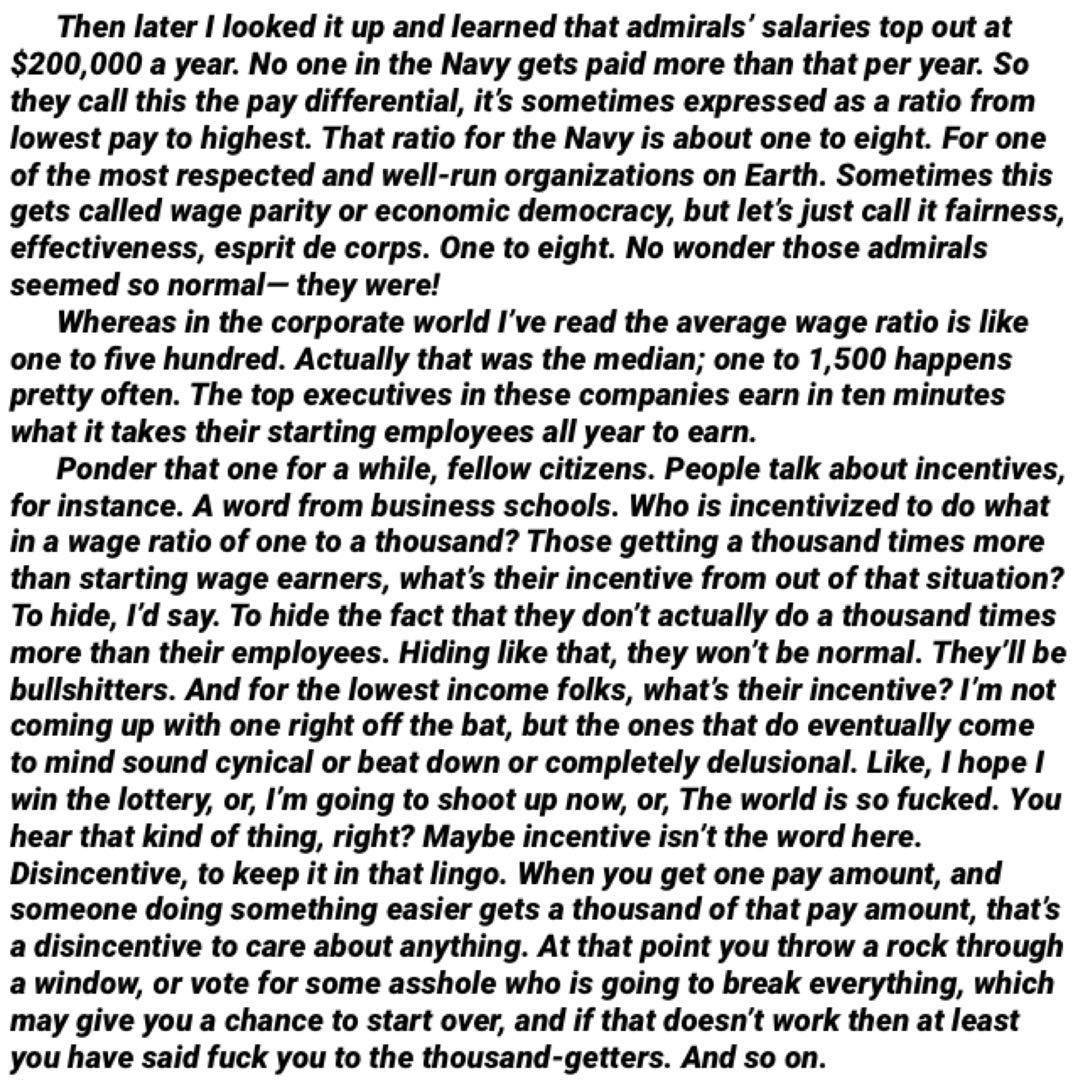
I hate this book because all throughout he‘s sneaking in info dump nonfiction into the weakest of fictional characters. I‘ve wanted to bail but nuggets like here are thought provoking. This unnamed woman who we only hear from in this one chapter is from the late 2030s early 2040s.